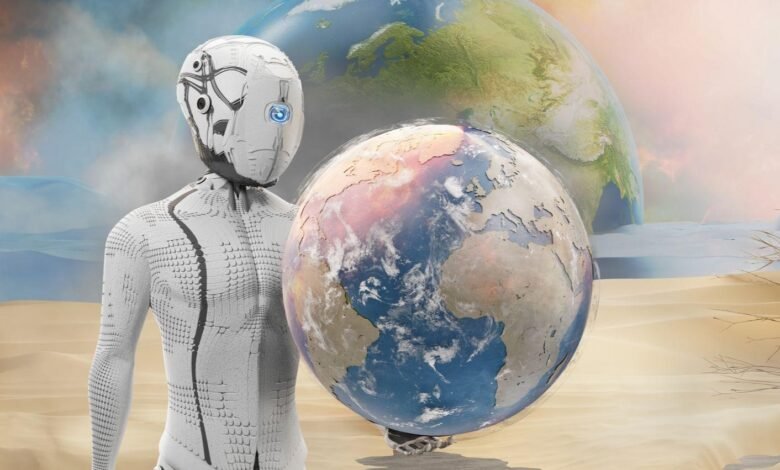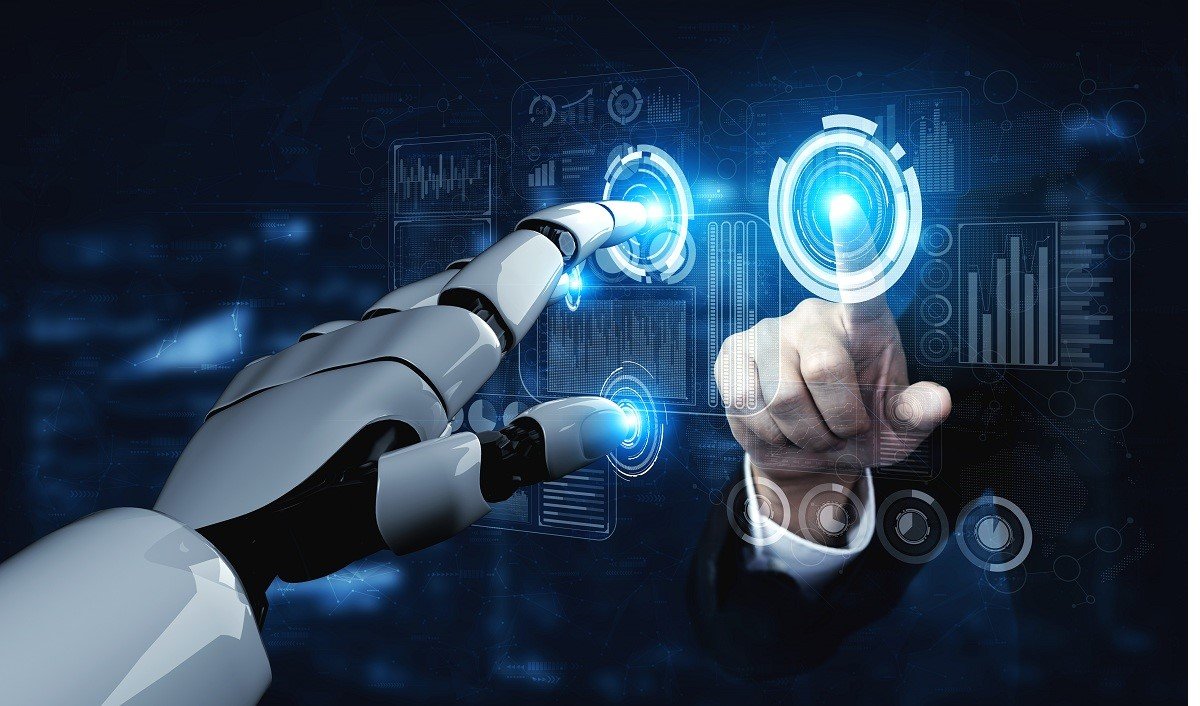How to Use AI in Climate Change Predictions and Mitigation in 2023

It change has become an increasingly pressing global issue, with far-reaching consequences for the environment, economies, and societies. As we venture into 2023, the integration of artificial intelligence (AI) in climate change predictions and mitigation strategies has gained significant traction. In this article, we will delve into the ways AI is being harnessed to address the challenges posed by climate change and drive effective mitigation efforts.
The impacts of climate change are becoming more pronounced, emphasizing the need for innovative solutions. AI, with its ability to process vast amounts of data and extract meaningful insights, is proving to be a game-changer in the field of change predictions and mitigation strategies.
The Role of AI in Climate Change Predictions
AI plays a pivotal role in refining climate change predictions by analyzing historical data, models, and real-time observations. This enables scientists to better understand trends and make more accurate projections about future climate scenarios.
Data Collection and Analysis
Efficient data collection is crucial for accurate climate predictions. AI-powered sensors and satellites gather data from various sources, such as ocean temperatures, atmospheric conditions, and ice melt rates. Machine learning algorithms then process this data to identify patterns and anomalies.
Enhancing Climate Models with AI

Traditional models are complex and computationally intensive. AI assists in improving the accuracy of these models by incorporating real-time data, leading to more nuanced predictions that consider a wider range of variables.
Early Warning Systems
AI-driven early warning systems provide timely alerts for extreme weather events, allowing communities to prepare and respond effectively. This is particularly vital in areas prone to hurricanes, floods, and wildfires.
AI in Natural Disaster Management
In the aftermath of natural disasters, AI aids in damage assessment and resource allocation. Drones equipped with AI analyze disaster-stricken areas, helping relief organizations identify areas needing urgent attention.
Smart Agriculture and Resource Management
AI-powered agricultural technologies help farmers optimize irrigation, crop rotation, and pest control. By minimizing resource wastage, these technologies contribute to sustainable food production.
Urban Planning and Infrastructure Resilience
AI assists urban planners in designing resilient cities that can withstand climate-related challenges. This involves developing infrastructure that can endure flooding, heatwaves, and other environmental stressors.
Renewable Energy Optimization
AI optimizes the efficiency of renewable energy sources like solar panels and wind turbines. Predictive analytics help energy providers anticipate fluctuations in energy generation and demand, enhancing grid stability.
Carbon Capture and Sequestration
AI contributes to carbon capture technologies by identifying suitable locations for carbon storage and optimizing capture processes. This aids in reducing greenhouse gas emissions and mitigating their effects.
Challenges and Ethical Considerations
While AI offers promising solutions, ethical concerns regarding data privacy, algorithmic bias, and accountability must be addressed. Striking the right balance between innovation and responsibility is crucial.
The Science of Climate Change
The foundation of change predictions lies in the scientific understanding of how greenhouse gases interact with the Earth’s atmosphere, trapping heat and leading to temperature increases. This knowledge forms the basis for predictive models that simulate future scenarios based on different emissions trajectories.
Advancements in Prediction Models
In recent years, there have been remarkable advancements in climate prediction models. These models now incorporate a wide array of factors, including ocean currents, solar radiation, and atmospheric conditions. This multi-faceted approach enhances the accuracy of predictions and provides a more comprehensive view of potential outcomes.
Uncertainties in Predictions
Despite the progress made, uncertainties persist in climate change predictions. The complex interplay of natural processes and human activities makes it challenging to precisely forecast future changes. This uncertainty can hinder policy-making and preparedness efforts.
Socioeconomic Impacts
The consequences of climate change extend beyond the environment, affecting economies and societies. Predictions indicate that industries reliant on agriculture, tourism, and coastal infrastructure will face significant challenges. Socioeconomic disparities could widen, posing ethical concerns.
Ethical Dilemmas in Climate Change Predictions

Ethical considerations arise in predicting climate change impacts. Balancing the interests of current generations with those of future generations is a moral dilemma. How do we prioritize actions that minimize harm to vulnerable populations while ensuring a sustainable planet for the future?
Balancing Short-Term and Long-Term Effects
Predictions often prompt debates about balancing short-term economic gains with long-term environmental health. Ethical choices involve understanding the trade-offs and finding ways to achieve equilibrium between immediate needs and long-term sustainability.
The Role of Technological Innovations
Technology plays a pivotal role in refining climate change predictions. Advanced data collection methods, supercomputing, and artificial intelligence contribute to more accurate models. Embracing these tools ethically requires responsible data management and equitable access.
International Cooperation and Policy Challenges
We change transcends borders, demanding international collaboration. Predictions underscore the need for cohesive global policies and agreements. Ethical challenges arise in addressing power dynamics among nations and ensuring equitable burden-sharing.
Climate Migration and Displacement
Predictions about climate-induced migration and displacement are ethically intricate. Communities may be forced to relocate due to rising sea levels or extreme weather events. Just and humane responses are vital, considering the rights and dignity of affected populations.
Environmental Justice and Fairness
We change predictions can exacerbate environmental injustices. Vulnerable communities often bear the brunt of its impacts. Ethical considerations emphasize the importance of equitable resource allocation and inclusive decision-making.
Communication of Predictions to the Public
Effectively conveying change predictions to the public is essential. Ethical communication involves transparency, avoiding sensationalism, and fostering informed public engagement. This empowers individuals to take meaningful actions.
Adapting to Unavoidable Changes
Certain changes are inevitable, even with immediate emissions reduction. Ethical adaptation strategies prioritize vulnerable communities, ecosystems, and species, ensuring their resilience in the face of transformations.
Corporate and Industrial Responsibilities
Predictions highlight the role of corporations and industries in change. Ethical responsibilities include reducing carbon footprints, embracing sustainable practices, and being accountable for environmental impacts.
Collaboration between AI Experts and Climate Scientists
Effective collaboration between AI experts and scientists is essential. Interdisciplinary partnerships enable the development of AI solutions that align with the specific needs of climate research.
Policy Implications and Government Initiatives

Governments are recognizing the potential of AI in climate change mitigation. Supportive policies and funding initiatives are crucial to drive the adoption of AI-driven solutions across various sectors.
Conclusion
As we navigate the challenges of climate change in 2023 and beyond, AI emerges as a potent tool in predicting and mitigating its impacts. By harnessing AI’s capabilities, we can better understand the complexities of our changing climate and devise strategies to safeguard our planet for future generations.
Read more : Top 8 Procreate Alternatives for Android
FAQs
How does AI improve climate change predictions?
AI processes vast amounts of data to identify patterns and trends, leading to more accurate climate projections.
Can AI help in managing natural disasters?
Yes, AI aids in damage assessment, resource allocation, and early warning systems for natural disasters.
What role does AI play in renewable energy?
AI optimizes renewable energy sources for enhanced efficiency and stability in energy generation.
What are the ethical concerns related to AI in climate change solutions?
Ethical concerns include data privacy, algorithmic bias, and ensuring accountability in AI-driven decisions.
How can governments promote the integration of AI in climate mitigation efforts? Governments can create supportive policies and provide funding to encourage the adoption of AI solutions in climate-related sectors.
Read more : How to Adopt Hyperloop Technology for High-Speed Travel in 2023








One Comment